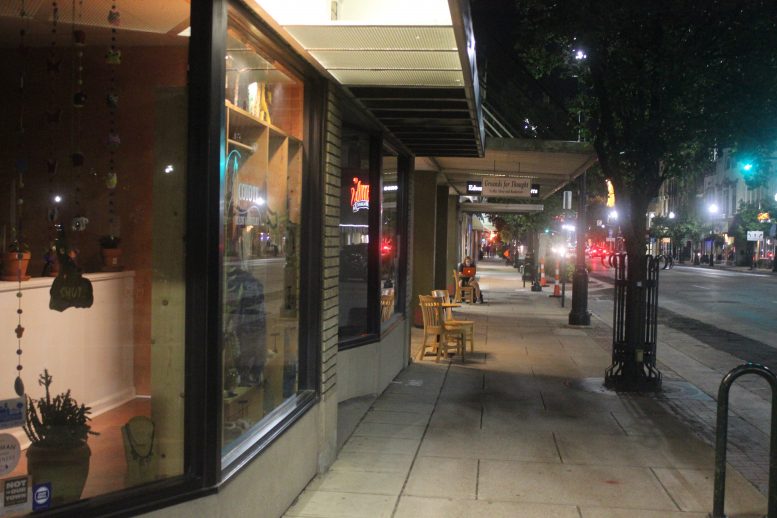By JAN LARSON McLAUGHLIN
BG Independent News
As more local businesses open their doors to customers, public health officials want to make sure they aren’t opening up the region to a second wave of COVID-19.
Businesses that don’t follow guidelines for social distancing, wearing masks and disinfecting surfaces could find themselves having to close again, Wood County Health Commissioner Ben Batey said Tuesday during the weekly conference call with local elected officials.
“If cases start to pop up, your business is going to shut down” – not because of an order from the health department, but because employees will get sick, he said.
Once one employee gets sick, others at a business will have to be isolated up to 14 days to make sure they didn’t also contract the virus, Batey explained.
“We don’t want to see this become a normal thing,” of outbreaks at businesses as they reopen to the public, he said.
Batey and Wood County Emergency Management Agency Director Jeff Klein also stressed that local residents experiencing cabin fever shouldn’t put themselves and others at risk of COVID-19 by gathering in groups of more than 10 people.
Batey mentioned that Bowling Green Police Division responded to 14 complaints about loud music and gatherings over the weekend.
“I think we’re going to see more of that as people become complacent,” he said.
Klein cautioned that the county EMA office has been fielding calls from local citizens reporting gatherings of more than 10 people.
“The reality is, we field calls on a daily basis,” he said. If a gathering exceeds 10 people, “either the health department or EMA will get a phone call.”
Klein noted that the two biggest hotspots for COVID-19 in the U.S. right now are in Ohio – at the state prisons in Marion and Pickaway. These outbreaks emphasize the need for social distancing.
“If we let our guard down,” the region could be in store for a “huge setback,” Klein said.
State Sen. Theresa Gavarone, R-Bowling Green, encouraged businesses to follow best practices.
“So we don’t see a resurgence and a second wave,” she said.
Luckey Mayor Cory Panning asked about the possibility of the state allowing some rural businesses to open earlier than those in urban areas since they don’t generate the same crowds.
For example, Panning talked about a barbershop in Luckey that has just two barber chairs. However, Wood County Sheriff Mark Wasylyshyn pointed out that the state talked about that possibility, but then heard concerns that people from more populated areas would travel to the rural shops for services they can’t get in urban areas.
Bowling Green Mayor Mike Aspacher and Panning asked about federal and state funding to help local governments weather the pandemic. Gavarone mentioned the CARES money being made available.
But both mayors expressed concerns that funding is too restrictive.
“It may be good for some bigger cities,” but it won’t help smaller ones, Panning said.
Aspacher said Bowling Green is seeing big increases in overtime expenses. The city relies on income tax revenue to pay for core services. That revenue will undoubtedly see a big drop – but services must still be provided, he said.
“The level of service expectations has not dropped,” Aspacher said, adding that it would be helpful if the CARES funding could be used to make up lost revenue for grassroots governments.
Also during the conference call:
- Batey warned that the number of COVID-19 cases in local long-term care facilities will increase with the ability to do more widespread testing in those sites. “We do anticipate we’re going to see more cases in those facilities,” he said.
- Wasylyshyn said the sheriff’s office is starting to see an uptick in calls, as fewer people are staying home and more people are on the roads. There are still no known cases of COVID-19 among deputies or jail inmates, he said.
- Klein said his office is working to get PPE supplies to local doctors’ and dentists’ offices, “to help get them back on their feet.”
- Klein talked about the need to notice mental health issues during the pandemic. “Pay attention to that,” he said. “It does take a toll.” Services are available by calling United Way’s 211, NAMI, and Wood County Alcohol, Drug Addiction and Mental Health Services.

